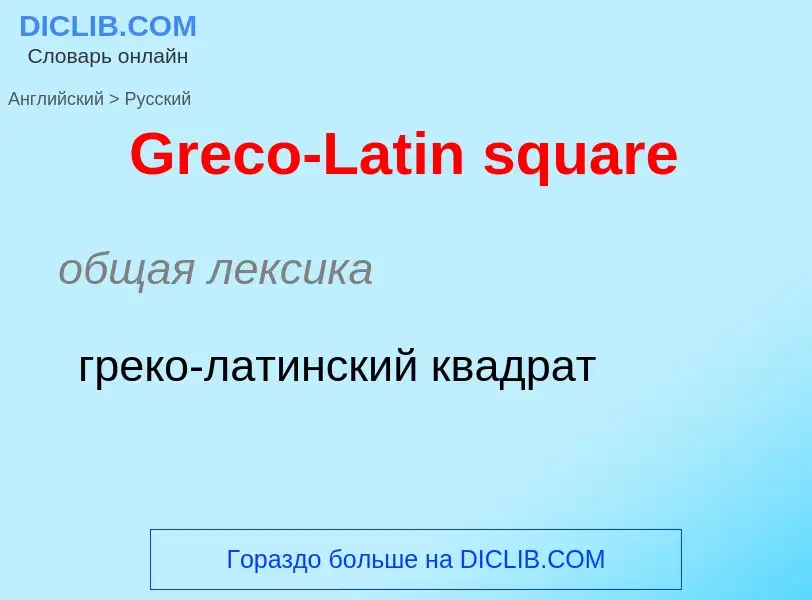Translation and analysis of words by ChatGPT artificial intelligence
On this page you can get a detailed analysis of a word or phrase, produced by the best artificial intelligence technology to date:
- how the word is used
- frequency of use
- it is used more often in oral or written speech
- word translation options
- usage examples (several phrases with translation)
- etymology
Greco-Latin square - translation to russian
общая лексика
греко-латинский квадрат
Greco-Latin; греко-латинский квадрат, Greco-Latin square; Eulerian square,
Definition

Wikipedia
In combinatorics, two Latin squares of the same size (order) are said to be orthogonal if when superimposed the ordered paired entries in the positions are all distinct. A set of Latin squares, all of the same order, all pairs of which are orthogonal is called a set of mutually orthogonal Latin squares. This concept of orthogonality in combinatorics is strongly related to the concept of blocking in statistics, which ensures that independent variables are truly independent with no hidden confounding correlations. "Orthogonal" is thus synonymous with "independent" in that knowing one variable's value gives no further information about another variable's likely value.
An outdated term for pair of orthogonal Latin squares is Graeco-Latin square, found in older literature.



